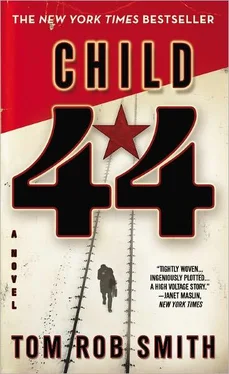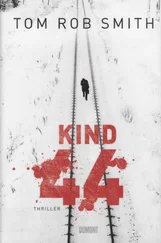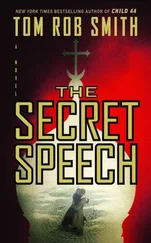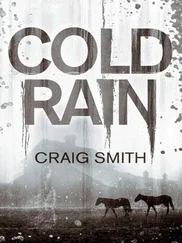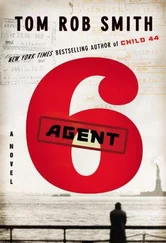The snowball struck the tip of his nose, breaking into his eyes, going up his nose, in his mouth. He stepped back, his face encrusted with white. It was a perfect shot — that was the end of the game. He’d been beaten by his little brother, a boy who wasn’t even five years old. Yet only now that he’d lost for the first time did he appreciate the importance of winning. His brother was laughing again — making a real show of it, like a snowball in the face was the funniest thing. Well, at least he never gloated like Arkady was doing now; he never laughed that much or squeezed that much satisfaction from his victories. His little brother was a bad loser and an even worse winner. The boy needed to be taught a lesson, cut down to size. He’d won one game, that was all: one fluky, insignificant game, one game out of a hundred: no — one out of a thousand. And now he was pretending that somehow they were even, or worse that he was better than him? Jora crouched down, digging through the snow, all the way to the icy ground below, collecting a handful of frozen mud and grit and stones.
Seeing his older brother making another snowball, Arkady turned and ran. This would be a revenge shot: put together with care and thrown with as much power as his brother could manage. He wasn’t going to be at the receiving end of one of those. If he ran he’d be safe. The shot, no matter how well made, no matter how accurate, could only travel so far in the air before it began to lose shape, fall apart. And even if it hit, after a certain distance they were harmless, barely worth throwing at all. If he ran, he could finish on a high. He didn’t want his victory overturned, tainted by a succession of quick hits from his brother. No: run and claim success. Finish the game now. He’d be able to enjoy the feeling until at least tomorrow when he’d probably lose again. But that was tomorrow. Today was victory.
He heard his brother shout his name. And he looked back, still running, smiling — sure that he was out of any effective range.
The impact was like a fist in his face. His head flicked round, his feet left the ground and for a second he was floating in the air. When his feet touched the ground again his legs collapsed under him, he fell, crumpled — too dazed to even put his hands out — crashing into the snow. For a moment he just lay there, unable to understand what had happened. There was grit, mud, spit and blood in his mouth. He tentatively pushed a mitten-covered fingertip between his lips. His teeth felt coarse like he’d been force-fed sand. There was a gap. A tooth had been knocked out. Beginning to cry, he spat into the snow, raking through the mess, looking for his missing tooth. For some reason that was all he could think about right now, that was all he cared about. He had to find his tooth. Where was it? But he couldn’t find it, not against the white of the snow. It was gone. And it wasn’t the pain, it was the anger, outrage at this injustice. Couldn’t he win one game? He’d won it fairly. Couldn’t his brother give him that?
Jora ran towards his brother. As soon as the clump of mud, grit, ice and stones had left his hand he’d regretted his decision. He’d shouted out his brother’s name, wanting him to duck, to avoid the shot. Instead, Arkady had turned around directly into the impact. Instead of helping him, it had seemed like a particularly malicious flourish. As he approached he saw blood on the snow and felt sick. He’d done this. He’d turned their game, a game he enjoyed as much as he enjoyed anything, into something terrible. Why couldn’t he have let his brother win? He would’ve won tomorrow and the day after and the day after. He felt ashamed.
Jora dropped to the snow, putting a hand on his little brother’s shoulder. Arkady shook it off, staring up with red, tear-filled eyes and a bloody mouth, looking like a savage animal. He didn’t say anything. His whole face was tight with anger. He got to his feet, a little unsteady.
— Arkady?
In reply his little brother just opened his mouth and cried out, making an animalistic sound. All Jora could see was a set of dirty teeth. Arkady turned around and ran away.
— Arkady, wait!
But Arkady didn’t wait — didn’t stop, didn’t want to hear his brother’s apology. He ran as fast as he could, his tongue searching for the newly made gap in his front teeth. Finding it, feeling the gum with the tip of his tongue, he hoped he’d never see his brother again.
14 February
Leo stared up at Apartment Block 18–a low-rise, squat slab of grey concrete. It was late afternoon, already dark. An entire working day had been lost to a task that was as unpleasant as it was unimportant. According to the militia incident report, a boy aged four years and ten months had been found dead on the railway lines. The boy had been playing on the tracks, at night, last night, and was caught by a passenger train; his body was cut up by the wheels. The driver of the 21.00 to Khabarovsk had communicated at his first stop that he’d caught a glimpse of someone or something on the tracks shortly after leaving Yaroslavskiy Vokzal station. Whether that train had actually hit the boy wasn’t yet established. Maybe the driver didn’t want to admit to hitting the child. But there was no need to press the issue: it was a tragic accident with no question of blame. The matter should’ve already been closed.
Ordinarily there was no reason Leo Stepanovich Demidov — an up-and-coming member of the MGB, the State Security force — would have become involved in this kind of incident. What was there for him to do? The loss of a son was heartbreaking for the family and relatives. But, bluntly, it was meaningless at a national level. Careless children, unless they were careless with their tongues, were not State Security concerns. However, this particular situation had become unexpectedly complicated. The parents’ grief had taken a peculiar form. It seems they were unable to accept that their son (Leo checked the report — committing the name Arkady Fyodorovich Andreev to memory) had been responsible for his own death. They’d been telling people that he’d been murdered. By whom — they had no idea. For what reason — they had no idea. How could such a thing even be possible — once again, they had no idea. Yet even without a logical, plausible argument they had an emotive power on their side. There was the very real possibility they were convincing other gullible people: neighbours, friends and strangers — whoever might listen.
To aggravate the situation further, the boy’s father, Fyodor Andreev, was himself a low-ranking member of the MGB and, as it happened, one of Leo’s subordinates. Aside from the fact that he should know better, he was bringing the MGB into disrepute by using the weight of his authority to give credibility to this unfeasible assertion. He’d crossed a line. He’d let his feelings cloud his judgement. Had the circumstances not been mitigating, Leo’s task here might well have been this man’s arrest. The whole thing was a mess. And Leo had been forced to take temporary leave from a sensitive, genuine assignment in order to straighten the matter out.
Not looking forward to the confrontation with Fyodor, Leo took his time walking up the stairs, contemplating how he had ended up here — policing people’s reactions. He’d never intended to join the State Security Department; the career had grown out of his military service. During the Great Patriotic War he’d been recruited for a special-forces unit — OMSBON, the Independent Motor-rifle Brigade for Special Tasks. The third and fourth battalions of this unit had been selected from the Central Institute of Physical Culture, where he’d been a student. Hand-picked for athleticism and physical prowess they were taken to a training camp at Mytishchi, just north of Moscow, where they were taught close combat, weapons training, low-altitude parachuting and the use of explosives. The camp belonged to the NKVD, as the secret police was known before State Security became the MGB. The battalions came under the direct authority of the NKVD, not the military, and the nature of their missions reflected this. Sent behind enemy lines, destroying infrastructure, collecting information, carrying out assassinations — they were clandestine raiders.
Читать дальше
